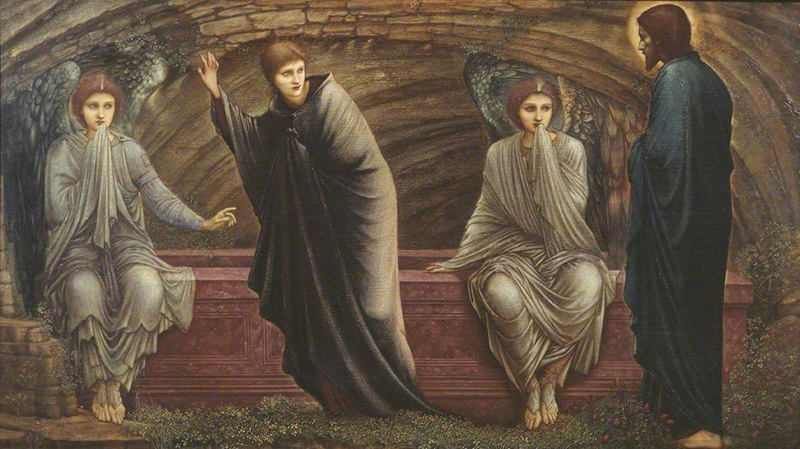My dear brothers and sisters in the Lord,
In a cemetery, there is a tomb on which was placed huge slabs of granite cemented together and fastened by heavy steel clasps. It belonged to a woman who did not believe in the resurrection from the dead. She directed in her will that her grave be made so secure, if there was a resurrection, it could not reach her. On the marker were inscribed these words, “This burial place must never be opened.”
However, in time a tiny acorn that was buried in the grave by accident began to grow. Slowly it pushed its way through the soil and grew out from beneath. As the trunk enlarged, the great slabs were gradually shifted by the oak tree so that the steel clasps were wrenched from their sockets. A seed, an acorn, became a tree and opened a tomb that was never meant to be opened.

The power of the Resurrection of Jesus is such as this, although many people do not believe in the Resurrection. Their lack of belief does not negate the power of Jesus’ Resurrection, especially as a grantor of our own eventual resurrection and conquest of death itself.
Several years ago, a national survey was done asking the questions, “Do you believe that, after you die, your physical body will be resurrected some day?” Only 36 percent of those interviewed believed in the statement, while 54 percent said they did not believe, and 10 percent were undecided. Clearly, as St. Paul tells us, if Christ was not raised from the dead, our faith is in vain.
Also, however, Christ’s Resurrection from the dead is the guarantee of our own resurrection. If he was not raised from the dead, we certainly have no hope for resurrection either. Belief in the Resurrection is central to our faith. In the Creed we recite at Mass, we profess not only our faith in the Resurrection of Jesus from the dead, but also our own eventual resurrection. Why do so many find it hard to believe in this central teaching of our faith?
Perhaps some believe it, but not as directly as is stated in the Creed. Many seek immortality and a type of resurrection in the biological continuation of their genes. It is their children and grandchildren, their progeny, who carry on their life in some way. Others say that it is their achievements that guarantee a type of immortality so that they will not be forgotten, while still others, in New Age religious terms, see their relationship to the cosmos as a way that they could achieve immortality. Still others look for transcendence, immortality and resurrection in psychic experiences. Most recently, we have heard about the practice of cryonics, that is, the freezing of bodies, awaiting the science that will resurrect them.
The story of the Resurrection of Jesus is no myth, it is a mystery. Were it not for the witnesses of Scripture and the eyewitness testimony of so many, it would be easy to dismiss as some cleverly concocted myth. As we search the Scriptures and understand the living tradition of the Church down through the centuries, however, we know that this truth is real. It is not only the eyewitnesses of the Apostles and disciples that encourage us, but also the lives of so many martyrs and saints down through the ages who have given their lives for Jesus Christ, the One who was risen from the dead. People do not die for historical figures, no matter how important they might have been to the world’s history, but many people do live and die for Jesus Christ.
As we approach this Easter, let us reaffirm our faith in the Resurrection, not only that of Jesus’ bodily Resurrection from the dead but also that of our own eventual resurrection on the last day. These are the tenets of our faith. To believe them certainly means to “put out into the deep” where there is not the explanations that the scientific method can provide us. Faith, however, goes beyond what we can see and prove. Faith is a gift given to us at our Baptism, one which we cherish and live by every day, knowing that on the last day the Resurrected Jesus will raise us also from the dead.
